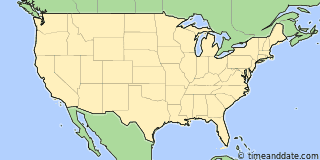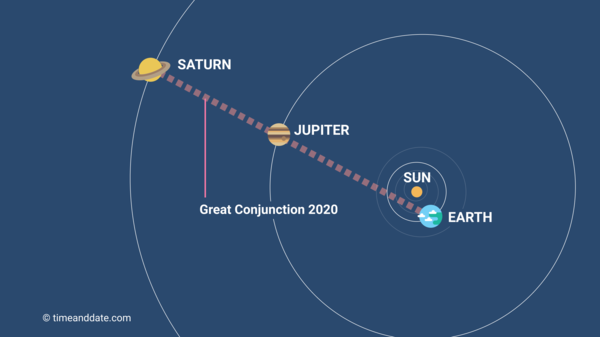| Night Time: | 8 hours, 11 minutes |
|---|---|
| Sunset: | Jul 10 at 9:40 pm |
| End of Twilight*: | Jul 10 at 11:15 pm |
| Start of Twilight*: | Jul 11 at 4:15 am |
| Sunrise: | Jul 11 at 5:51 am |

56th Anniversary of Apollo 11 on the Moon—Where Did It Land?
Neil Armstrong and Buzz Aldrin touched down in Mare Tranquillitatis on July 20, 1969. NASA’s Noah Petro tells us about the landing site.
Our Interactive Night Sky Map simulates the sky above Geographical Center of North America Monument. The Moon and planets have been enlarged slightly for clarity. On mobile devices, tap to steer the map by pointing your device at the sky. Need some help?
Tonight's Sky in Geographical Center of North America Monument, Jul 10 – Jul 11, 2025
Mercury rise and set in Geographical Center of North America Monument
View just after sunset.
Mercury is close to the Sun and can only be seen shortly after sunset. Try finding a good, unobstructed view of the horizon.
Thu, Jul 10 ↓10:41 pm
Time:
Altitude: °
Direction: °
Venus rise and set in Geographical Center of North America Monument
View before sunrise.
Venus can best be seen in the hours just before sunrise. Visibility deteriorates as the sky gets brighter. Venus is visible by day, but may be hard to find.
Fri, Jul 11 ↑3:09 am
Time:
Altitude: °
Direction: °
Mars rise and set in Geographical Center of North America Monument
View after sunset.
Mars can best be seen in the hours just after sunset. Visibility improves as the sunlight fades.
Fri, Jul 11 ↓12:00 midnight
Time:
Altitude: °
Direction: °
Jupiter rise and set in Geographical Center of North America Monument
Fairly close to the Sun. Visible only before sunrise and/or after sunset.
Jupiter is just 12 degrees from the Sun in the sky, so it is difficult to see.
Fri, Jul 11 ↑4:53 am
Time:
Altitude: °
Direction: °
Saturn rise and set in Geographical Center of North America Monument
View in the early morning.
Saturn can be seen for more than 5 hours during the late night/early morning and until sunrise.
Fri, Jul 11 ↑12:35 am
Time:
Altitude: °
Direction: °
Uranus rise and set in Geographical Center of North America Monument
View before sunrise. Bring binoculars.
Uranus can best be seen in the hours just before sunrise. Visibility deteriorates as the sky gets brighter. You may need binoculars.
Fri, Jul 11 ↑2:33 am
Time:
Altitude: °
Direction: °
Neptune rise and set in Geographical Center of North America Monument
View in the early morning. Use binoculars.
Neptune can be seen for more than 5 hours during the late night/early morning and until sunrise. Very faint, use binoculars.
Fri, Jul 11 ↑12:30 am
Time:
Altitude: °
Direction: °
Planets Visible in Geographical Center of North America Monument
| Planetrise/Planetset, Thu, Jul 10, 2025 | ||||
|---|---|---|---|---|
| Planet | Rise | Set | Meridian | Comment |
| Mercury | Thu 8:11 am | Thu 10:41 pm | Thu 3:27 pm | Slightly difficult to see |
| Venus | Fri 3:09 am | Fri 6:22 pm | Fri 10:45 am | Good visibility |
| Mars | Thu 10:48 am | Fri 12:00 midnight | Thu 5:24 pm | Average visibility |
| Jupiter | Fri 4:53 am | Fri 8:50 pm | Fri 12:51 pm | Slightly difficult to see |
| Saturn | Fri 12:35 am | Fri 12:28 pm | Fri 6:32 am | Great visibility |
| Uranus | Fri 2:33 am | Fri 5:52 pm | Fri 10:13 am | Difficult to see |
| Neptune | Fri 12:30 am | Fri 12:32 pm | Fri 6:31 am | Difficult to see |












